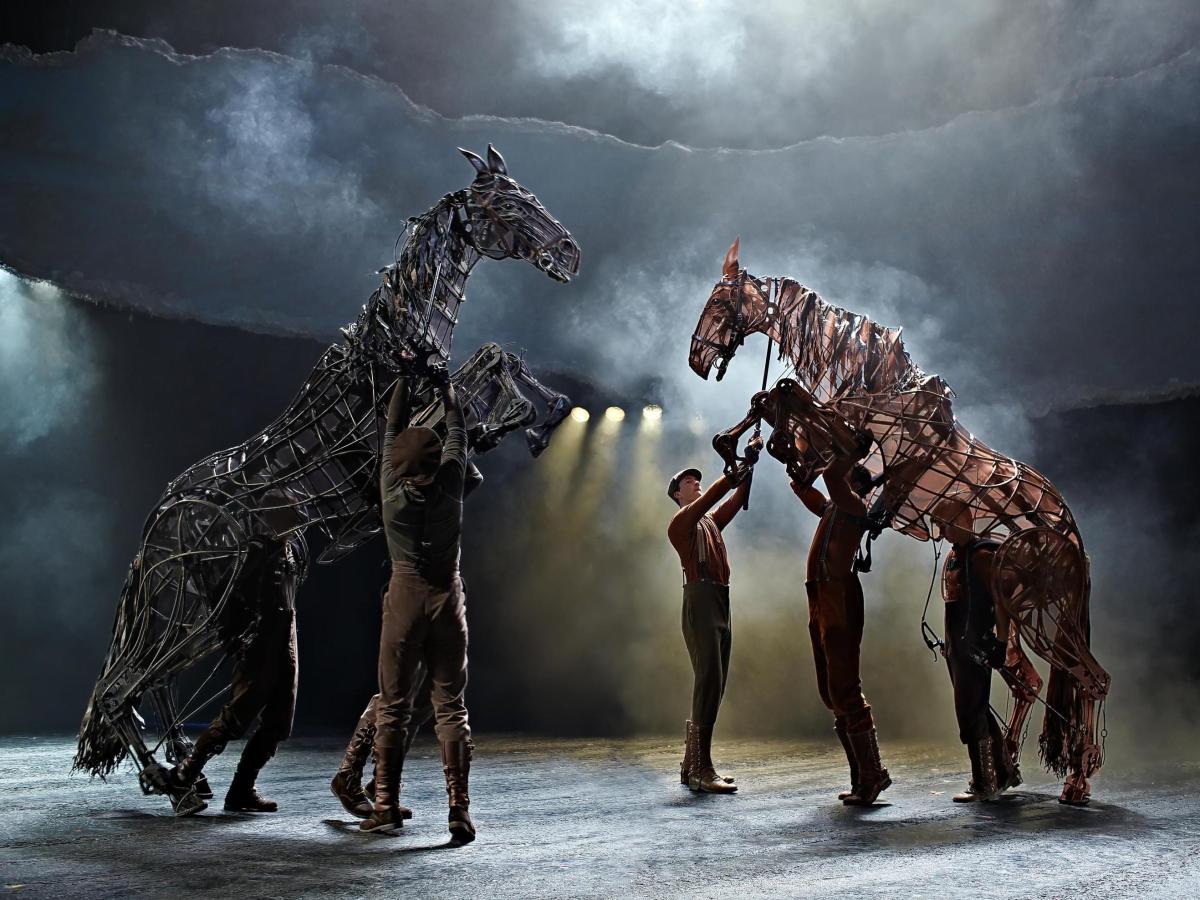War Horse is the most powerful anti-war film I have ever seen. I’m not talking about Steven Spielberg’s 2011 epic, although The Guardian film blog gave that the heading, ‘War Horse tramples on western militarism’, so one can assume that both films were true to the same spirit.
The difference is that the film I saw – the National Theatre’s original stage production of War Horse, recently captured live in HD from London’s West End – required the audience to suspend disbelief in more ways than one. The contrasts in landscape between peaceful Devon and war-torn France were evoked, not by complex stage sets but by effects of lighting and sound, costumes and clever visuals. And the life-size horses were puppets, created by South Africa’s Handspring Puppet Company.
Yet the horses, notably the ‘lead’, Joey, were believable from the moment a stiff-legged colt sniffed at the grass and skittishly reacted to the sounds and sights of the farm. Toby Sedgwick’s choreography showed a deep understanding of horses: their exploration of their surrounds, their courage as well as fear in battle, their strong capacity for affection. Some emotions could be read easily: ears pricked for interest or listening, but back when distressed or angry.
While making Joey a delightful creature, this realism also made one feel for his trials as one might for a real horse – or even a human being! This is perhaps in part due to the National Theatre’s ensemble approach to their cast: it has been difficult to find the names of the two finest actors in the play: the characters of the boy, Albert, and the German officer, Friedrich Muller.
Similarly, composer John Williams is credited with the music that is particularly dramatic in the battle scenes. With dark, intense lighting and images of rolling grey seas and dense mud, Williams’ score evokes the clash of battle and the misery of war. But there are folk-type songs for the Devon scenes that could easily have been of the period, but which are in fact by contemporary English songwriter and guitarist John Tams. Telling a story, sometimes with very simple accompaniment, these songs present a contrast to the conflict that dominates the second part of the play.
My only criticism is that this half seemed too drawn out and somewhat repetitive in its depiction of the horrors of war – but given the title of the film, that may not be a reasonable view. Also, the long interval, including comments from presenters and an interesting clip from the documentary, The Making of War Horse, stretched the running time to three hours. The impression of being part of the live audience is central to this series of films, and it enhanced the experience to be told that audiences around the world were enjoying the premiere of the film within the same week.
Based on the 1982 novel for children by Michael Morpurgo, the original War Horse emphasised the relationship between Joey the horse and his young owner, Albert. Morpurgo reportedly thought ‘they must be mad’ to try to make a play from his best-selling novel, but Nick Stafford’s 2007 adaptation for the stage won multiple awards and led to the famous Spielberg film.
This film deserves to do at least as well. If it does, many factors will be at play but it will be a puppet that is truly at the heart of War Horse’s success.
Rating: 4 ½ out of 5 stars
War Horse
National Theatre Live
Selected cinemas nationally
www.palacecinemas.com.au
Limited season from 8 March
Actors:
Director:
Format:
Country:
Release:





